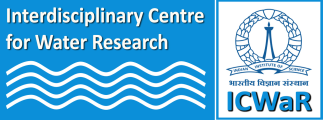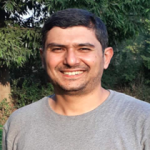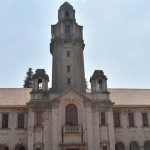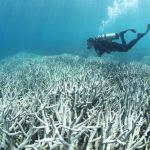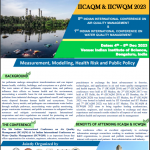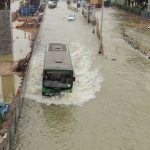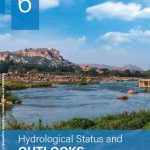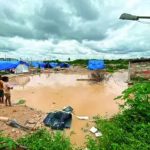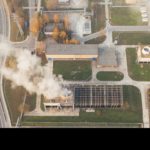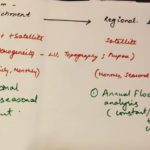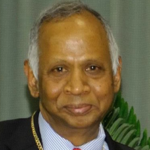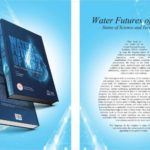Frontiers of Hydrology Research – Role of Isotope Tracer Application
Name of the Speaker: Dr. R D Deshpande
Title of the Seminar: Frontiers of Hydrology Research – Role of Isotope Tracer Applications [Gallery]
Date and Time: 16th July, 2019 (Tuesday), 4:00 PM
Venue: Lecture Hall, ICWaR
About the speaker: Dr. R D Deshpande is currently the Chairman of Geosciences Division of Physical Research Laboratory (PRL), Ahmedabad, which is a unit of Department of Space Govt. of India. He has a Ph.D. from the M.S. University of Baroda, Vadodara, based on his isotope hydrology research at PRL. Dr. Deshpande’s research is focused on understanding the complex hydro-geological and hydro-meteorological processes using stable and radioactive isotopes as a tracer tool. His research in the field of Isotope Hydrology is well-known in India and abroad. He carried out a Regional Aquifer System analyses in the North Gujarat Cambay region to explain the temperature and helium anomalies in the groundwater vis-à-vis tectonic frame work of the region. He has explained the origin and distribution of high levels of fluoride in ground waters of North Gujarat and suggested remedial measures against the endemic fluorosis. He has assigned radio-carbon and Helium accumulation ages to ground waters of Gujarat and shown that groundwater being exploited today in the water stressed areas was recharged several tens of thousands of years old. This highlighted the need for artificial recharge and rain water harvesting. He observed for the first time the kinetic isotope fractionation during liquid condensation under supersaturated condition. He has identified the zones of groundwater helium anomalies along the Narmada lineament as a signature of active hydrothermal circulation. Dr. Deshpande is the Principal Coordinator of the National Programme on Isotope Fingerprinting of Waters of India (IWIN) which is a multi-institutional collaborative research programme, aimed at isotopically characterizing various hydrological cycle components (sea surface water, atmospheric water vapor, rain water, groundwater and river water) to understand subtle aspects of interaction and exchange between them. Dr. Deshpande set up a state-of-the-art Isotope Ratio Mass Spectrometer (IRMS) laboratory under the IWIN programme, dedicated for oxygen and hydrogen isotopic analyses of water and vapor samples. His research is based on numerous wide-spread and exhaustive field sampling across the country for collection of samples and their isotopic analyses. He has published more than 40 peer reviewed research papers based on this fieldwork. Dr. Deshpande is nominated as a Mission Expert in Isotope Hydrology by International Atomic Energy Agency (IAEA), Vienna. He has served as a member of the several Expert and Advisory committees of MOWR, MOES and the DST. He is an expert member in the Board of Studies in Geology at M.S. University of Baroda and Research Development Committee of the M.G. Science Institute, Ahmedabad and Kachchh University, Bhuj. He is a Fellow of the Geological Society of India and the Gujarat Science Academy.
Abstract: The contemporary hydrology is faced with great challenges of known problems and the greater of unknowns. Problems of water scarcity, anthropogenic pollution, geogenic contamination, dwindling surface flows, inequitable distribution and salinity ingression have turned cliché in hydrology community. The scientific processes underlying these hydrological problems are quite well understood and can be mitigated by appropriate field measures, treatment technologies, improved water use efficiency and policy interventions enforced with strong political will. While we grapple with these known water resource problems, there lies beyond a mind-boggling ignorance about certain aspects of functioning of hydrological systems, their natural course and response to perturbing stimuli. This ignorance about certain hydrological processes does not hinder the ongoing efforts of mitigating existing problems; therefore, it is presently on the back-burner. However, for a fundamental hydrology researcher, this ignorance defines the frontier of research. Filling these hydrological knowledge gaps will become essential in the coming decades to face the imminent scenario. This knowledge gap may seem only academic in nature at present but is bound to have societal implications. Some of the important questions in the above backdrop are: (1) What is the relative contribution of Western Disturbances and Indian Summer Monsoon in Himalayan precipitation, rivers and cryosphere? (2) How are wetlands in Northeast India participating in monsoon rainfall? (3) How to identify signatures of static groundwater being circulated into the surface and atmospheric components of hydrology? (4) How much of submarine groundwater discharge can be tapped without damaging marine ecology? (5) Are there deep sources of self-recharging and self-replenishing groundwater (seawater distillate or otherwise) other than static water? (6) What is the contribution of recycled moisture in Indian precipitation? (7) How to perceive the effect of varying Himalayan riverine influx in the Bay of Bengal? (8) Can the Bay of Bengal surface water cool below threshold temperature for feeding moisture? These and many more questions define the frontier of basic research in hydrology which can be defined only by multitude of tools and expertise in conjunction with each other. Isotope application is one such tool which can play an important role in this basic research pursuit. Progress hitherto and the possibilities will be discussed in the seminar.
Date/Time
Date(s) - 16/07/2019
4:00 pm
